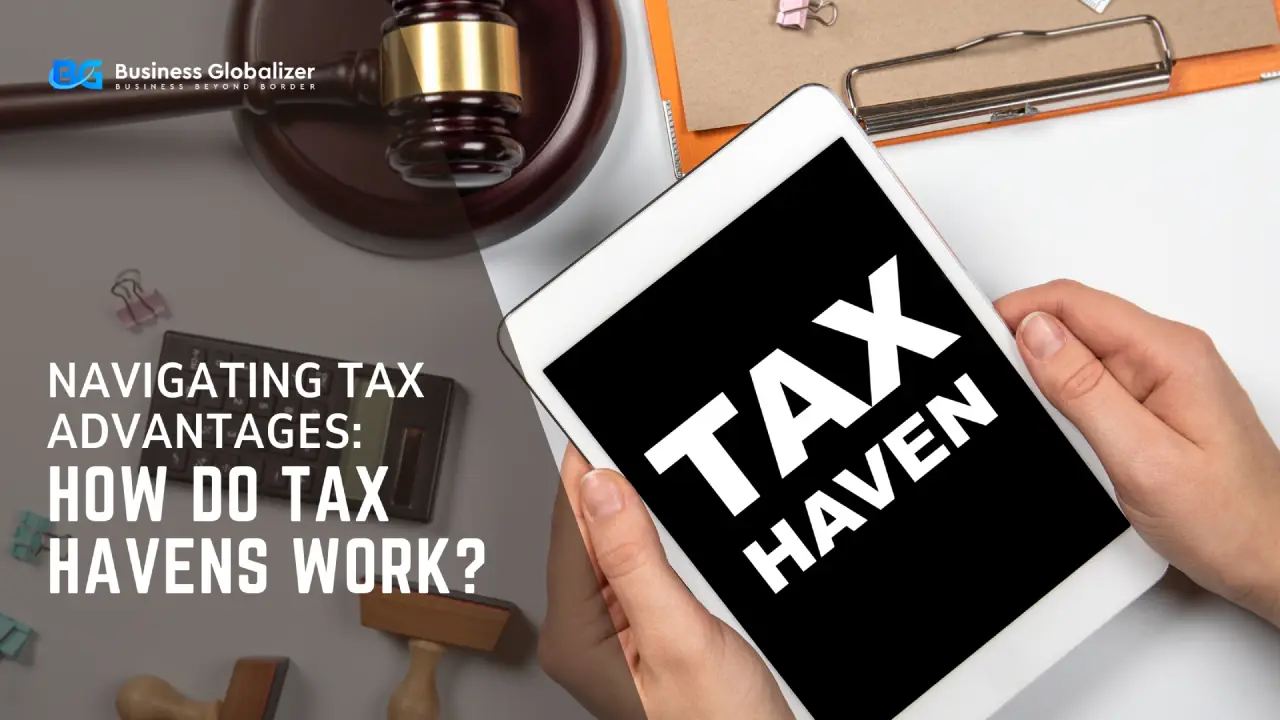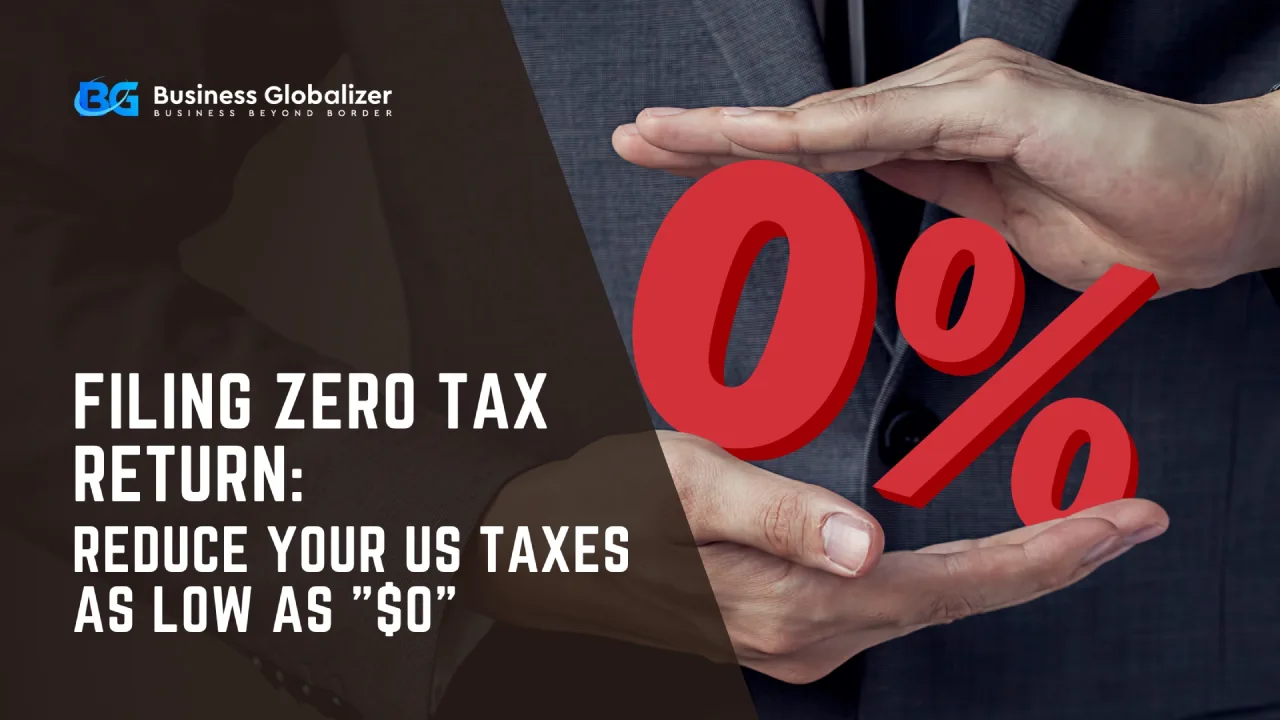Welcome to our blog on tax breaks!
This edition will explore the concept of “tax havens” and how they work. Tax havens are locations or countries that provide specific financial benefits, allowing individuals and businesses to legally reduce their tax obligations. But how exactly do these tax havens work, and what benefits do they provide?
Let’s journey through the world of tax havens and uncover the secrets that make them so appealing. So buckle up and prepare to explore the fascinating world of tax breaks!
Understanding Tax Havens’ Meaning
Although there is no universally accepted definition of a tax haven, let’s define the term briefly for your clarification.
A country is considered a tax haven if it provides foreign citizens and businesses with little to no taxation on bank deposits in a politically and economically stable environment. They provide tax benefits to corporations and the very wealthy, but there is a clear potential for abuse in illegal tax avoidance schemes.
Although not all tax havens are countries in the strictest sense, we can refer to them as such here for convenience. Foreigners are not required to pay taxes in certain tax havens because there are no income, estate, or gift taxes.
However, in most countries, foreigners are exempt from paying taxes because the tax system is designed to provide certain types of foreign investment with a very low effective tax rate.
Some countries with a reputation for being tax havens have worked hard to earn that reputation. Others became tax havens by following taxation principles, such as strict territoriality in income taxation, without intending to do so. Such countries are likely to regard the tax haven label as derogatory.
Characteristics of Tax Haven
Tax havens have some common characteristics or features of their own. The characteristics of a Tax haven are given below:
- Low or No Taxes: Tax havens typically have low or no taxes on personal income, corporate income, capital gains, and other types of income.
- Strict Bank Secrecy Laws: Tax havens frequently have strict bank secrecy laws that make tracking financial transactions difficult for governments and law enforcement agencies.
- No Substantial Activities: Tax havens have no requirements for substantial activities.
- Favorable Regulatory Environment: Tax havens often have a favorable regulatory environment for businesses, making it simple to establish and operate businesses.
- Geographic Location: Tax havens are typically located in remote or inaccessible areas, making it difficult for governments to enforce tax laws.
- Territory Within a Country: A tax haven may be located within a country. Examples: Delaware, Ontario, Hong Kong, etc.
Different Types of Tax Havens
Each type of tax haven is based on a different set of factors. Take a look to learn about some of those-
- No-Tax Havens: Some places have no taxes, meaning people do not have to pay taxes on their earnings, profits, or assets. This can appeal to those who want to keep more of their money.
- Low-Tax Havens: These tax havens have meager tax rates than other countries. People and companies may establish businesses or residences to take advantage of these lower taxes.
- Secrecy Havens: Financial institutions are not required to reveal the identities of account holders in these locations. This privacy lets people hide their financial activities from the tax authorities in their home country.
- Offshore Financial Centers (OFCs): Countries or territories that have developed sophisticated financial infrastructure to attract foreign investors and businesses. They provide a variety of financial services that are tax-efficient.
- Tax Havens: Some countries provide special tax breaks to encourage specific economic activities. For example, they may provide tax breaks to companies that operate in specific industries or invest in specific areas.
- Treaty Havens: These countries have entered into tax treaties with other countries, which can help individuals and businesses operating across borders reduce their overall tax burden.
- Tax Havens for Digital Businesses: Some countries develop specific tax regulations to attract digital businesses, offering tax breaks and favorable business conditions.
Tax Haven Countries
A tax haven country is a jurisdiction that provides preferential tax treatment to non-residents, typically by charging low or no taxes on personal income, corporate income, capital gains, or other types of income. Individuals and businesses frequently use tax havens to avoid paying taxes in their home countries.
Some of the most well-known tax haven countries are:
- British Virgin Islands.
- Cayman Islands.
- Bermuda.
- Netherlands.
- Switzerland.
- Luxembourg.
- Hong Kong.
- Jersey.
- Singapore.
- United Arab Emirates.

Where Is the Biggest Tax Haven in the World?
The British Virgin Islands and the Cayman Islands are the world’s most popular corporate tax havens for 2021, according to the Tax Justice Network’s Corporate Tax Haven Index. This index ranks the jurisdictions that help multinational corporations pay less corporate income tax.
International Organizations Working on Tax Havens
Tax havens continue to appeal to individuals and businesses seeking to avoid paying taxes. As a result, international tax laws for tax haven countries will most likely continue to evolve in the coming years.
Some of the international organizations working to combat tax havens are as follows-
- The Organization for Economic Cooperation and Development (OECD): The Organization for Economic Cooperation and Development (OECD) is an intergovernmental organization that promotes economic growth and development. The OECD has been at the forefront of the fight against tax havens, publishing several reports.
- The Financial Action Task Force (FATF): The FATF is an intergovernmental organization that combats money laundering and terrorist financing. The FATF has also issued reports on tax havens and blacklisted several countries for failing to cooperate in the fight against tax evasion.
- The United Nations: The UN has also participated in the fight against tax havens. The United Nations has issued reports on the subject and has urged countries to take action to combat tax havens.
Advantages of Tax Havens
Tax havens provide numerous advantages to businesses, individuals, and other entities.
Some of those are given below-
- Country or National Level: Tax Haven Countries benefit from attracting capital to their banks and financial institutions, which can later be used to build a robust financial sector.
- Individual or Business Level: Individuals or businesses benefit from tax savings, which in tax haven countries can range from zero to low single digits compared to high taxes in their country of citizenship or domicile.
- Lower Taxes: Tax havens typically have lower taxes than other jurisdictions, saving individuals and businesses significant money.
- Confidentiality: Tax havens frequently have strict confidentiality laws, which can help protect individuals’ and businesses’ privacy.
- Ease of Doing Business: Tax havens frequently have simplified business regulations, making it easier for individuals and businesses to establish and run businesses.
- Access to International Markets: Tax havens frequently have access to international markets, making international trade and investment easier for individuals and businesses.
- Tax Reduction: Most Western countries have high, progressive tax systems that cost high earners and businesses a lot of money. Tax havens are popular because they legally reduce tax liability. Famous tax havens allow offshore companies to pay little or no taxes. Antigua and the Cayman Islands have no corporate income, capital gains, personal income, inheritance, or other taxes. Similar tax regimes exist in many offshore tax havens.
- Convenience: Offshore tax havens attract investors, businesses, and wealthy individuals to set up financial structures there. They benefit from offshore investment and financial stability. Many jurisdictions allow remote company formation with low registration fees in less than a week. Most jurisdictions have minimal annual operating requirements, reporting requirements, and exchange controls.
- Safeguarding Assets: Offshore tax havens protect assets well. They operate outside the regulatory and legal jurisdictions of the US, EU, and other developed Western nations. Local court rulings are difficult to consider when claiming offshore assets and taxes. The best offshore vehicle in a tax haven that can withstand local court orders, creditor claims, and other threats is a Cook Islands asset protection trust. Offshore tax havens rarely have Tax Information Exchange Agreements (TIEAs) with the US or EU, making it hard to monitor tax avoidance. This enhances security.
The Role of Tax Havens in Tax Avoidance
Tax havens can generate tax avoidance and other unfair aspects. Some of those are the following-
- Tax Avoidance: Tax havens allow individuals and businesses to avoid paying taxes in their home countries by moving their assets and income to these jurisdictions.
- Loss of Tax Revenue: Tax havens can result in a loss of tax revenue for governments because individuals and businesses use these jurisdictions to avoid paying taxes.
- Unfair Competition: Tax havens can give businesses an unfair competitive advantage over businesses that do not use them. This is because businesses that use tax havens can pay lower taxes, allowing them to lower their prices and compete with businesses that do not use tax havens.
The Impact of Tax Havens on the Global Economy
There are numerous impacts—both positive and negative—of tax havens on the global economy. For your clarification, those are explored briefly-
Positive Impacts of Tax Havens on the Global Economy
- Attract Investment: Tax havens can entice investment from individuals and businesses looking to lower their tax liability. This can boost economic growth in the tax haven jurisdiction and the countries where the investment is made.
- Financial Services: Tax havens can offer various financial services, including banking, insurance, and asset management. This can make it easier for businesses and individuals to access these services while promoting financial stability.
- Protect Your Privacy: Tax havens frequently provide robust privacy protections, which can appeal to individuals and businesses looking to keep their financial information private. Individuals concerned about their safety or want to avoid government scrutiny may find this helpful.
Negative Impacts of Tax Havens on the Global Economy
- Lost Tax Revenue: Tax havens can result in lost tax revenue for governments because individuals and businesses move assets to these jurisdictions to avoid paying taxes. This could jeopardize the government’s ability to provide basic education, healthcare, and infrastructure services.
- Unfair Competition: Tax havens can provide businesses operating in these jurisdictions with an unfair competitive advantage over businesses operating in other jurisdictions. This can result in job losses and lower economic growth in countries without tax havens.
- Money Laundering: Tax havens can be used for money laundering, which is the process of concealing the origins of illegally obtained funds. This can potentially facilitate criminal activity such as drug trafficking and terrorism. Tax havens can also generate tax evasion.

What Is Tax Evasion?
Tax evasion is an illegal attempt by individuals, corporations, trusts, and others to avoid paying taxes. It is a serious offense punishable by fines, imprisonment, or both.
Tax evasion is a serious crime with serious consequences. It can deprive governments of much-needed tax revenue, resulting in service cuts. It may also give businesses that engage in tax evasion an unfair competitive advantage over businesses that follow the law.
The penalty for tax evasion varies depending on the severity of the offense, but it can be as much as $250,000 for individuals and $500,000 for corporations.
Which Country Has the Most Tax Evasion?
There is no definitive answer to the question of which country has the highest rate of tax evasion. However, the following countries are frequently mentioned as having high levels of tax evasion:
- United States: The United States is frequently cited as having one of the world’s highest rates of tax evasion. According to a 2012 Institute on Taxation and Economic Policy study, the US government loses $450 billion in tax revenue each year due to tax evasion.
- China: Another country frequently mentioned as having high levels of tax evasion is China. According to a World Bank study published in 2017, the Chinese government loses $1.2 trillion in tax revenue every year due to tax evasion.
- Russia: Russia is another country frequently mentioned as having high levels of tax evasion. According to a 2018 study by the Russian Presidential Academy of National Economy and Public Administration, the Russian government loses $300 billion in tax revenue every year due to tax evasion.
- India: India is another country frequently mentioned as having high levels of tax evasion. According to a 2019 study by the National Institute of Public Finance and Policy, the Indian government loses $100 billion in tax revenue every year due to tax evasion.
Can Tax Havens Cause Money Laundering?
Yes, tax havens can be used for money laundering. Money laundering is the process of making illegally obtained money appear legal. Tax havens can be used to launder money because they often have strict confidentiality laws that help conceal true asset and income ownership.
- Appealing for Money Laundering: Tax havens are jurisdictions that charge low or no taxes to individuals and businesses. This makes them attractive for money laundering by concealing the source of illegally obtained funds.
- Strict Confidentiality Laws Can Conceal Money Launderers Identity: Tax havens often have strict confidentiality laws, which can aid in the protection of the privacy of individuals and businesses who use them. This makes it more difficult for law enforcement to find and prosecute money launderers.
- Complex Financial Structures Can Block Necessary Information: Tax havens frequently provide complex financial structures that can be used to conceal true assets and income ownership. This can make determining who is laundering money and how much money is being laundered difficult for law enforcement.
- Lack of Cooperation: Tax havens often lack cooperation with other countries’ law enforcement agencies. This makes it difficult for law enforcement to share information about money launderers and their activities.
What Is the World Taxation System or Global Tax?
A global tax or world taxation system is an idea that imagines a single international agency collecting taxes from everyone around the world. People talk about this idea because they believe it could stop wealthy individuals and companies from avoiding taxes and competing with each other in tax rates.
However, some people who strongly believe in their own country’s independence get upset about this idea because they see it as a threat to their nation’s control over its finances.
Disadvantages of Tax Havens
- Legal Risks: Using tax havens exposes individuals and businesses to legal risks such as tax evasion or money laundering.
- Reputational Risks: Using tax havens can harm individuals’ and businesses’ reputations, making it difficult to do business in other jurisdictions.
- Political Risks: Tax havens can be politically unstable, making asset and investment protection difficult.
- Economic Risks: Tax havens can cause governments to lose tax revenue, harming the economy.
- Moral Risks: Using tax havens is morally wrong because it allows individuals and businesses to avoid paying their fair share of taxes.
- Tax Evasion on a Greater Scale: Tax havens have created massive tax evasion records. The Pandora and Panama Papers leaks have highlighted some tax havens’ drawbacks.
The documents, for example, show that Jordan’s King Abdullah II used offshore companies to buy luxury real estate in the United States and the United Kingdom. The documents also reveal that former Ukrainian President Viktor Yanukovych’s family used offshore companies to launder money.
The Pandora and Panama Papers revelations have prompted calls for greater transparency in the global financial system and stricter tax haven regulations. It remains to be seen whether these calls will be taken seriously, but the leaks have undoubtedly increased awareness of the drawbacks of tax havens and the need for action to address them.
FAQs on How Do Tax Havens Work?
Q1. Which U.S. Companies Use Tax Havens the Most?
As of this writing, Apple, Nike, and Goldman Sachs may have the most money stashed away in foreign countries. Apple alone has about $215 billion in bank deposits in Ireland.
Microsoft, IBM, General Electric, Pfizer, ExxonMobile, Chevron, and Walmart are other big companies with accounts in other countries.
Q2. What Is Secrecy Jurisdiction?
Some people use the term “secrecy jurisdiction” instead of “tax haven” to describe places where individuals can hide their wealth and financial affairs from the law rather than places where multinational corporations can move tax out of the countries where they operate to pay less tax.
Q3. Are Tax Havens Legal?
The legality of tax havens varies from country to country. In some countries, it is illegal to use tax havens to avoid paying taxes. In other countries, it is legal to use tax havens, but there may be restrictions on how they can be used.
Q4. How Can I Avoid Using Tax Havens?
There are some ways to avoid using tax havens. These include:
- Observing your home country’s tax laws.
- Consult with a tax professional to ensure you comply with the law.
- Avoid dealing with companies or individuals known to use tax havens.
Wrapping Up
Tax havens can provide appealing opportunities for individuals and businesses to reduce tax liabilities legally. Lower tax rates and financial privacy can be obtained by taking advantage of these jurisdictions’ tax laws and regulations.
However, remember that tax laws are subject to change, and using tax havens should always be approached with caution and legal advice. Transparency and compliance with tax authorities are critical for navigating the world of tax havens safely and legally. Remember to stay informed and make informed decisions to take advantage of potential tax benefits.
Good luck with your tax planning!






